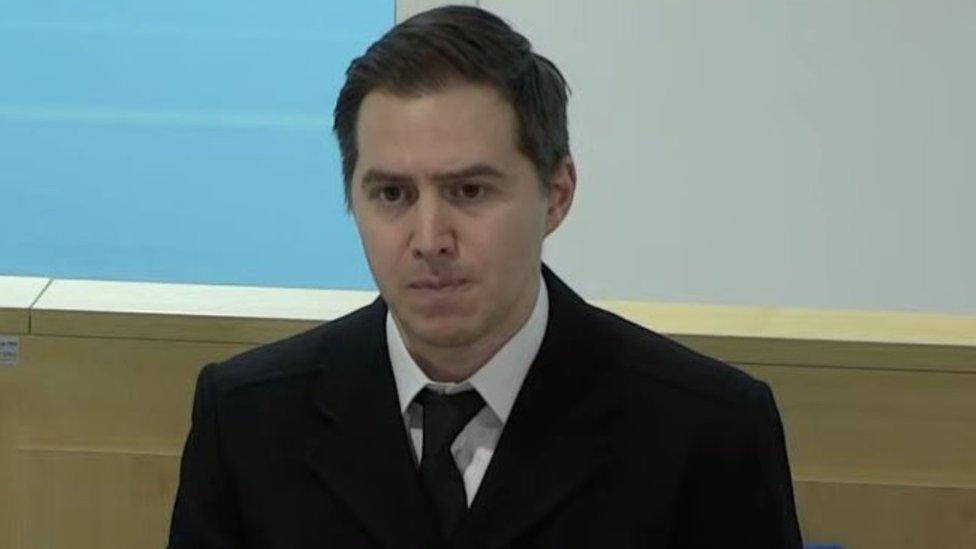Manchester Arena Inquiry: Paramedic 'struggled to cope'
- Published
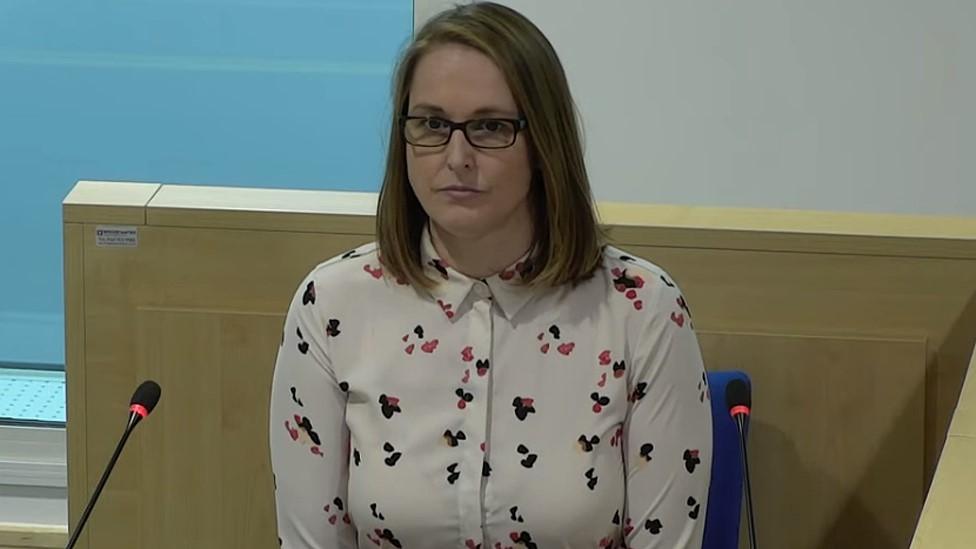
Lea Vaughan was medically retired from North West Ambulance Service in December 2020
A paramedic who helped those injured in the Manchester Arena bombing has told the inquiry into the attack about how she struggled to cope afterwards.
Lea Vaughan was one of three paramedics who entered the City Room, where the bomb exploded, on 22 May 2017.
She told the Manchester Arena Inquiry she was adequately trained for what had happened on the night but "not so much" for the aftermath.
She said she did not believe "any sort of training can prepare you for that".
The inquiry heard she was medically retired from North West Ambulance Service in December 2020.
Twenty-two people were killed and hundreds more injured when Salman Abedi detonated a bomb at the end of an Ariana Grande concert.

Twenty-two people died in the attack on 22 May 2017
At the time of the attack, Ms Vaughan was a member of the Hazardous Area Response Team (HART) and was sent into the City Room foyer 44 minutes after the blast, along with her colleague Christopher Hargreaves.
Fellow paramedic Patrick Ennis was already inside, treating casualties.
She told the inquiry that she would have expected other HART colleagues to follow once they arrived, but as the three paramedics "had a really efficient system working", she did not believe further paramedics "would have been of any help at that point".
Asked about why she and her colleague did not take pain relief into the bomb scene, Ms Vaughan said patients given medication would need to be monitored and they would not have been able to move on and help other casualties.
'Didn't think twice'
The inquiry has previously been told fire crews were held back from entering the City Room until two hours after the attack.
Ms Vaughan said she only realised they were not inside when saw makeshift stretchers being used to help remove casualties.
"I remember being a couple of patients in and turning to my colleague Chris and saying 'we need to get this one out now' and that was when I saw these makeshift stretchers," she said.
"Knowing that time isn't on our side, I just wanted the patients removed from that unsafe area... and for my colleagues to be able to do more advanced treatments on them."
The inquiry also heard that before going into the City Room, Ms Vaughan was informed that it was not known if the bomb scene was safe, but she said she "didn't think twice" about going into it.
She said the trio had not been informed that Greater Manchester Police had declared Operation Plato - a pre-arranged response to a marauding terrorist firearms attack - when they arrived, adding that if they had been, they would not have gone into the foyer as it was considered to be a "hot zone".
She said she would have held back until it was declared safe.
She added that the experience of what happened on the night and the emotional and mental impact of it had affected her deeply.
"Having been in the City Room with patients, I don't think any sort of training can prepare you for that and that's where I struggled," she said.
The inquiry continues.

Why not follow BBC North West on Facebook, external, Twitter, external and Instagram, external? You can also send story ideas to northwest.newsonline@bbc.co.uk
Related topics
- Published19 March 2021
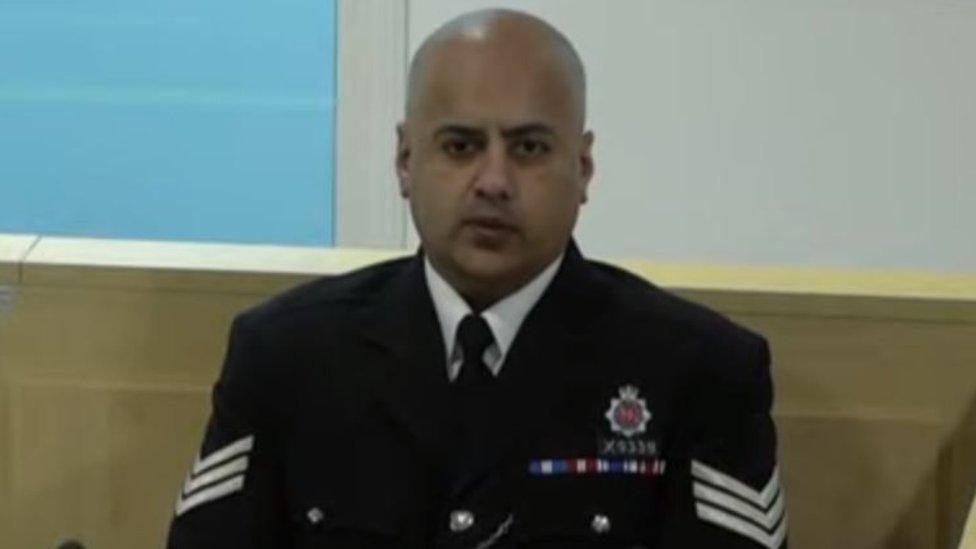
- Published18 March 2021
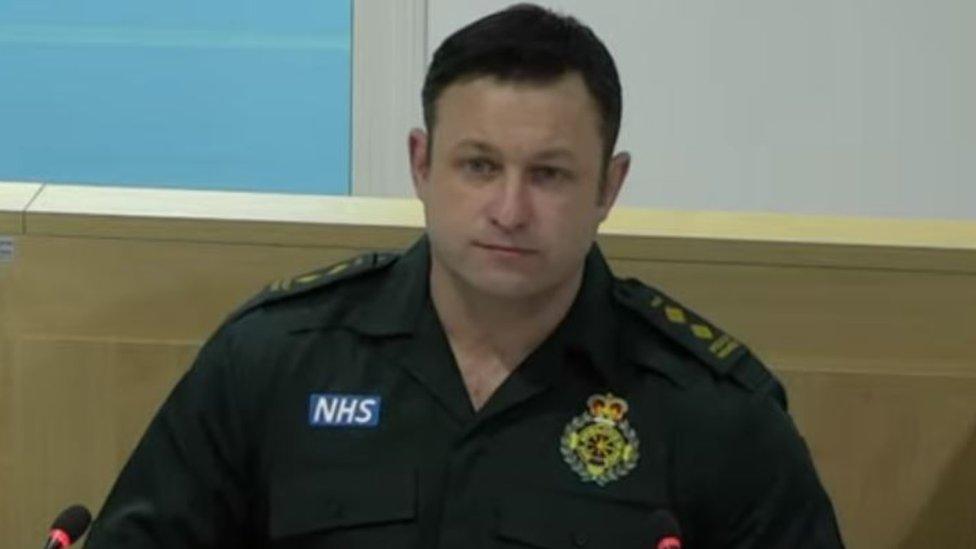
- Published17 March 2021
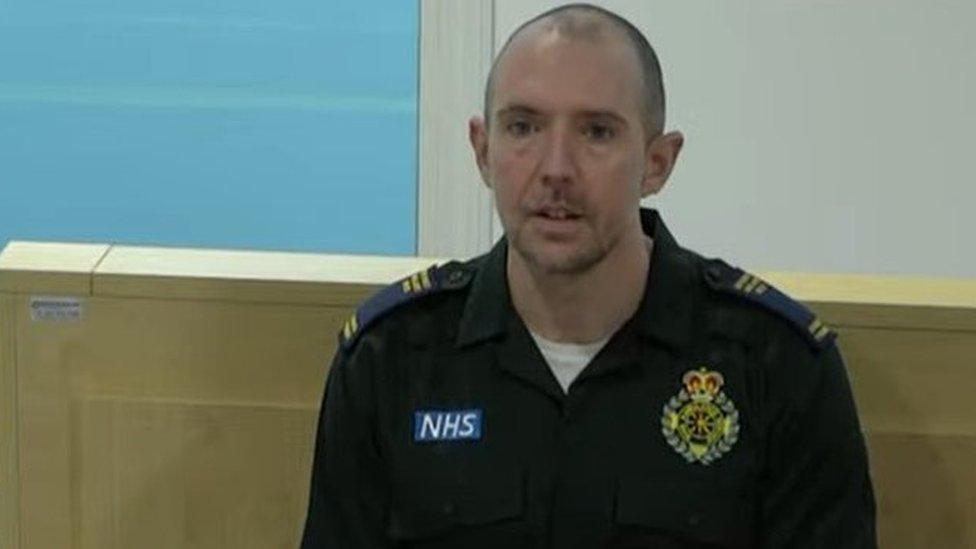
- Published16 March 2021

- Published11 March 2021
